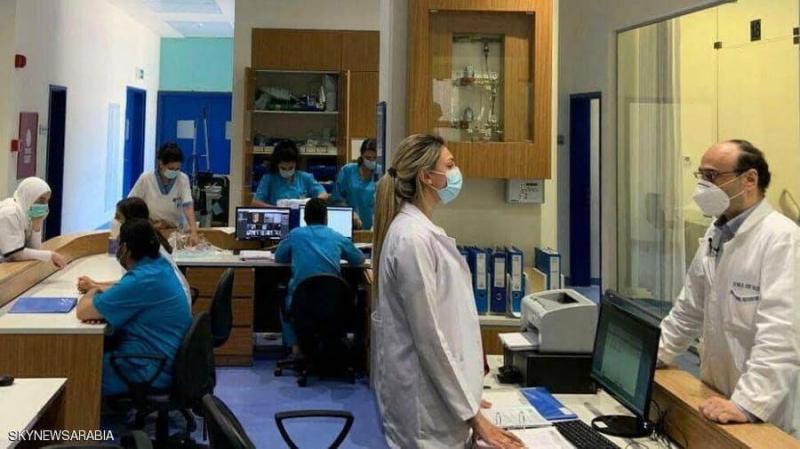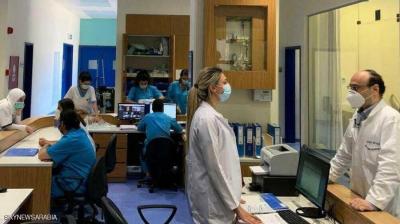Under the title "Lebanon's Ongoing Crises Increase Heart Disease Cases," Sky News reported that the economic crises that have hit Lebanon since the end of 2019 have affected a wide range of the Lebanese population. The repercussions of these crises have extended to the health sector, as the deteriorating economic situation has impacted the ability of Lebanese citizens to receive effective treatment amid an increasing incidence of heart attacks and their exacerbation.
In an interview with Sky News Arabic, Wafa, a 60-year-old Lebanese woman living in the Bekaa Governorate, who suffers from diabetes and blocked coronary arteries, stated: "My husband lost his job two months ago. Our financial situation is dire, but we used to be able to cover our expenses, and now it has become harder; we often eat lentils, bulgur, potatoes, and bread." She continued, "This is not a suitable diet for my health condition, but it is all we can afford."
In another area of Lebanon, Jamil, a Lebanese father of eight children living in Akkar in the north of the country, said: "When I go to the health center, they tell me that the medications are unavailable." Jamil suffers from cardiovascular issues, while his youngest son has pulmonary blockage; he mentioned, "The priority now is to treat my son as his condition is serious and needs attention."
In recent months, the incidence of heart diseases has increased, along with mortality rates, especially among young people, many of whom die suddenly, attributed by doctors to cardiac or cerebral strokes caused by psychological stress. It is indicated that about 600 million people worldwide suffer from heart and vascular diseases, accounting for 40% of premature deaths globally. In Lebanon, 15% of individuals over the age of 40 suffer from heart and vascular diseases, which cause 37% of premature deaths, as revealed by Dr. Naji Abi Nader, a vascular and heart specialist and the medical director of Al-Jaaitawi Hospital in Lebanon.
Dr. Abi Nader highlighted the repercussions of the ongoing security and economic crises and their impact on heart health in Lebanon. He stated, "We need to be aware of the dangerous symptoms affecting the heart and not ignore them because the ongoing crises have exposed many Lebanese to pressures that have contributed to the increase in the number of patients and deaths from heart attacks." He added, "Controllable factors include monitoring normal cholesterol levels and not exceeding 115."
Dr. Abi Nader explained, "Psychological factors and crises in Lebanon have caused many Lebanese to suffer from vascular diseases, with smoking and chronic psychological stress being the most significant contributors that lead to high blood pressure, diabetes, and harmful cholesterol levels." He mentioned, "We have begun to notice a segment of the population suffering from severe psychological stress, which undoubtedly helps in the release of hormones such as adrenaline and cortisol, thus increasing heart and brain attack problems."
He emphasized the importance of maintaining a healthy lifestyle and engaging in at least 15 minutes of exercise daily. Regarding managing stress, Dr. Abi Nader stressed the importance of identifying the sources of psychological pressures and knowing how to deal with them, as well as the necessity of consulting a specialist. He also advised reducing late-night activities and ensuring adequate sleep for about eight hours, noting that symptoms of psychological stress include neglecting one's appearance, feeling lethargic, and excessive smoking.
Finally, Dr. Abi Nader highlighted the causes that have exacerbated the number of deaths and cases in Lebanon, notably the long queues at fuel stations, mentioning that some individuals suffered heart attacks while waiting in these lines and often had existing heart issues.




